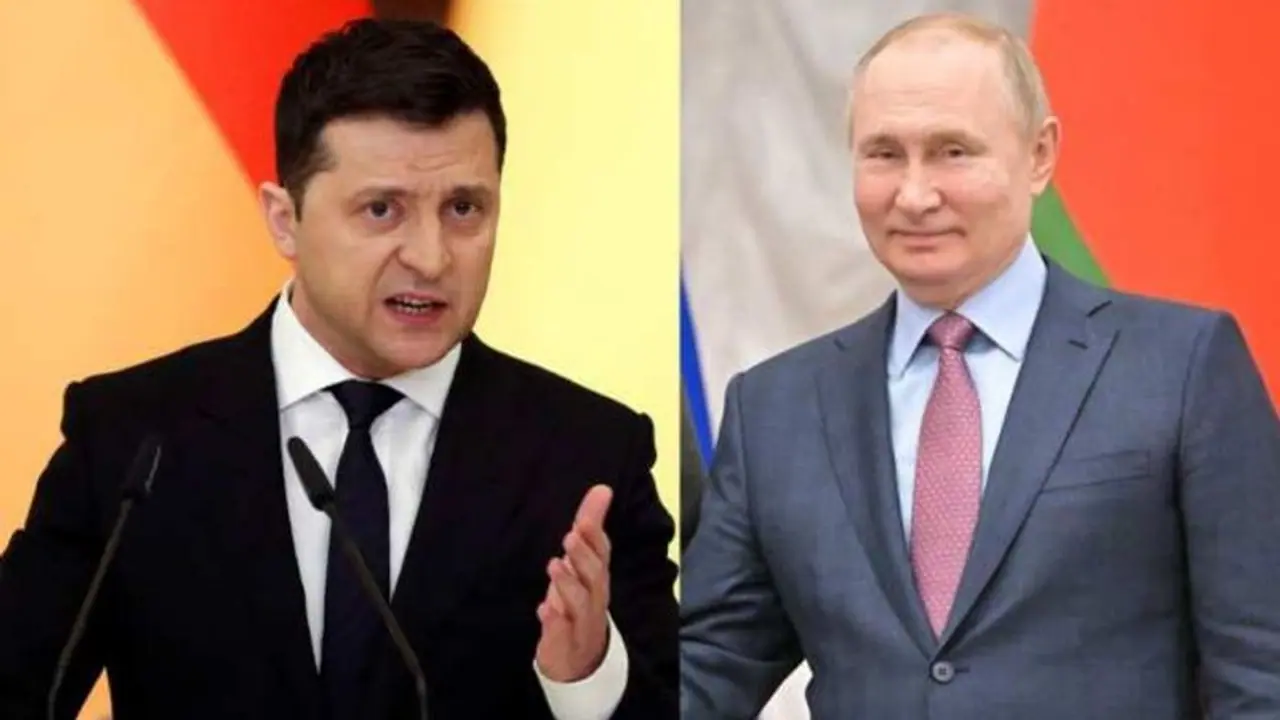Ukrainian President Volodymyr Zelenskyy has said that Vladimir Putin "will die soon," reigniting speculation about the Russian leader's health. Over the years, reports have suggested Putin suffers from ailments like Parkinson’s and cancer, though the Kremlin denies these claims.
Ukrainian President Volodymyr Zelenskyy has made a striking claim, declaring that Russian President Vladimir Putin 'will die soon' and that his death would mark the end of the ongoing war.

Zelenskyy made this remark during an interview in Paris, fueling fresh speculation about Putin’s health—a subject that has drawn media attention for years.
"He [Putin] will die soon, and that's a fact, and it [the war] will come to an end," Zelenskyy said following his meeting with French President Emmanuel Macron on Wednesday.
Also read: Vladimir Putin to visit India soon, Russia minister confirms 'preparations underway'
Recurring speculation about Putin’s health
For years, unverified reports have suggested that Putin is suffering from serious health issues, including cancer and Parkinson’s disease. Various media outlets have picked up on these reports, occasionally citing unusual public appearances as evidence:
Strange posture and tense gestures: In April 2022, a video circulated showing Putin slouching in his chair and gripping a table tightly during a meeting with former Defense Minister Sergei Shoigu. Reuters commented on the incident, stating, "The footage has only intensified existing speculation about the Russian leader's health, even as Kremlin officials dismiss these concerns as baseless."
This quote underscores how a single public appearance can reignite longstanding doubts about Putin's physical condition.
Rumors of body doubles and abrupt absences: Several media reports have noted that rumors about Putin using body doubles are not new. Several media outlets observed, "Frequent unexplained absences from public events and sporadic appearances have led some analysts to speculate that the Kremlin might be masking serious health issues."
Although such reports have circulated widely, the Kremlin has repeatedly denied any claims of health deterioration or the use of stand-ins.
Also read: Tiny trespasser! Child 'breaches' White House fence, Secret Service swings into action (WATCH)
Visible signs of physical decline: Media reports have highlighted that Putin’s physical demeanor during public engagements—characterized by a puffy face and occasional tremors—has added to the chorus of concern.
Observers have repeatedly pointed to Putin's physical inconsistencies during public appearances as a possible sign of an underlying illness, though no concrete evidence has ever been presented.
These posts reflect various concerns surrounding Putin's health, however, it’s important to note that none of the claims have been independently verified by Russian authorities.
Zelenskyy’s broader message and calls for pressure
Beyond his remarks on Putin’s health, Zelenskyy accused Russia of deliberately prolonging the war. "Russia wants this war to continue. It is dragging it out. We need to put pressure on Russia so that the war ends indeed," he said. The Ukrainian leader also urged the United States to remain resolute against what he termed the Kremlin’s “deception tactics.”
During his meeting with Macron, both leaders stressed European unity, particularly as concerns mounted over Hungary’s increasingly pro-Russian stance within the EU.
EU and NATO’s response amid rising tensions
As speculation over Putin’s health intensifies, European and NATO leaders are bracing for pivotal decisions. Macron announced an additional $2 billion in military aid for Ukraine, while NATO’s new chief, Mark Rutte, warned of severe consequences should Russia escalate aggression against any alliance member.
Despite ongoing Russian airstrikes, Zelenskyy expressed confidence that, "America will [...] lead Putin to accept an unconditional ceasefire," signaling hope for a turning point in the protracted conflict.
